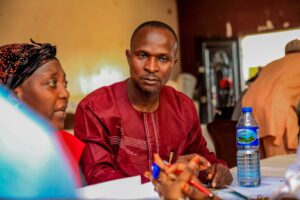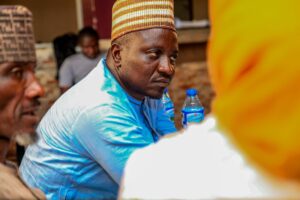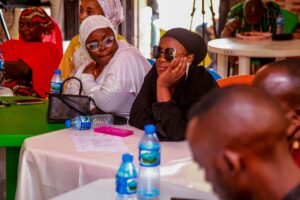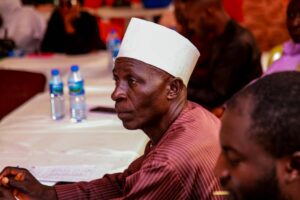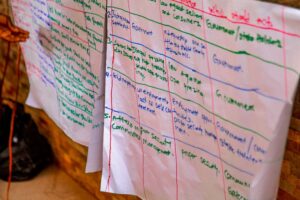JISRA Leads Interfaith Dialogue in Barkin Ladi to Address Insecurity and Promote Peaceful Coexistence
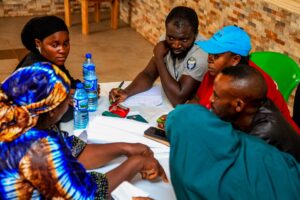
In a world where religious differences often lead to conflict, a new initiative is showing how dialogue can be a powerful force for peace. The Joint Initiative for Strategic Religious Action (JISRA) brought together Christians, Muslims, women, and youth in Barkin Ladi, Plateau State, for a two-day interfaith dialogue focused on tackling insecurity and building peaceful coexistence.
Led by the Dialogue, Reconciliation and Peace (DREP) Center, the Federation of Muslim Women Association of Nigeria (FOMWAN), and Search for Common Ground (SFCG), the event gathered 39 participants from diverse backgrounds at Gwol Motel & Garden from July 7–9. This session is part of a larger strategy to foster peace in Plateau State, which includes similar dialogues in the Bokkos Local Government Area and subsequent town hall meetings with local government officials and traditional leaders.
The dialogue created a safe space where participants could openly discuss shared concerns and values. Attendees discovered they had more in common than they thought, a realization that one participant, Saminu Shaibu, described as an “eye-opener.”
“It’s not about who is right or wrong, but how we can live together in peace and mutual respect,” Shaibu reflected.
Both Christian and Muslim leaders emphasized that their faiths are fundamentally aligned with religious freedom and peaceful coexistence. Alhaji Laminga Malan reminded participants that Islam is a religion of peace, quoting the Qur’an: “There is no compulsion in religion.” Pastor Agabus Ibrahim of the Christian Association of Nigeria (CAN) echoed this sentiment, referencing Romans 12:18: “If it is possible, as far as it depends on you, live at peace with everyone.”
Other leaders, like Rev. Sambo Dangata and Imam Danlami, shared personal stories of mediating conflicts and working together to build peace in their communities. Their testimonies showed that peaceful coexistence is not just a theory, but a practical way of life.
From Problems to Solutions
The dialogue did not shy away from the difficult issues facing communities in Plateau State, including:
* Drug abuse and its link to crime
* Farmer-herder conflicts and illegal grazing
* Kidnapping and general insecurity
* Discrimination and religious extremism
* Tensions between indigenous and settler communities
Instead of just identifying these problems, participants worked collaboratively to develop solutions. Working in groups, they analyzed the root causes of these issues and proposed concrete actions, highlighting the power of interfaith cooperation.

Fatima Abdullah, a participant, emphasized the importance of including diverse voices in the conversation. “As a woman, it meant a lot to be included and heard,” she said. “Interfaith peacebuilding must include women’s voices if we want lasting change.”
The session successfully achieved a notable gender balance, with 23 female and 16 male participants, ensuring women’s perspectives were central to the discussions.
Participants didn’t just talk—they committed to action. They developed key recommendations for addressing specific issues and identified the individuals and organizations responsible for implementing them, from government agencies to parents and religious leaders.

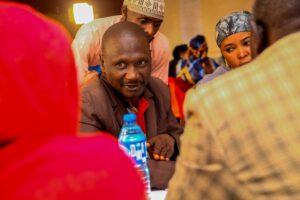
The success of the dialogue in Barkin Ladi provides a blueprint for fostering peace in other parts of Nigeria. The JISRA project, with its multi-tiered approach, creates a complete feedback loop from the community to local government authorities. First, it engages religious leaders in dialogue; then, it presents the communities’ findings and recommendations directly to LGA chairmen, councillors, and traditional leaders.


“One of the biggest takeaways for me was that peaceful coexistence is not just a slogan—it’s a daily practice,” said Davou Peter Davou, another participant. “We must involve our youth and traditional leaders in this effort.”
The bridges built during these two days in July extend far beyond the conference room. They represent pathways to a more peaceful, inclusive Nigeria where religious diversity is a source of strength, not division.
The JISRA project, through its partners, continues to promote interfaith harmony and peaceful coexistence through community-driven dialogue and strategic engagement with local government authorities.




